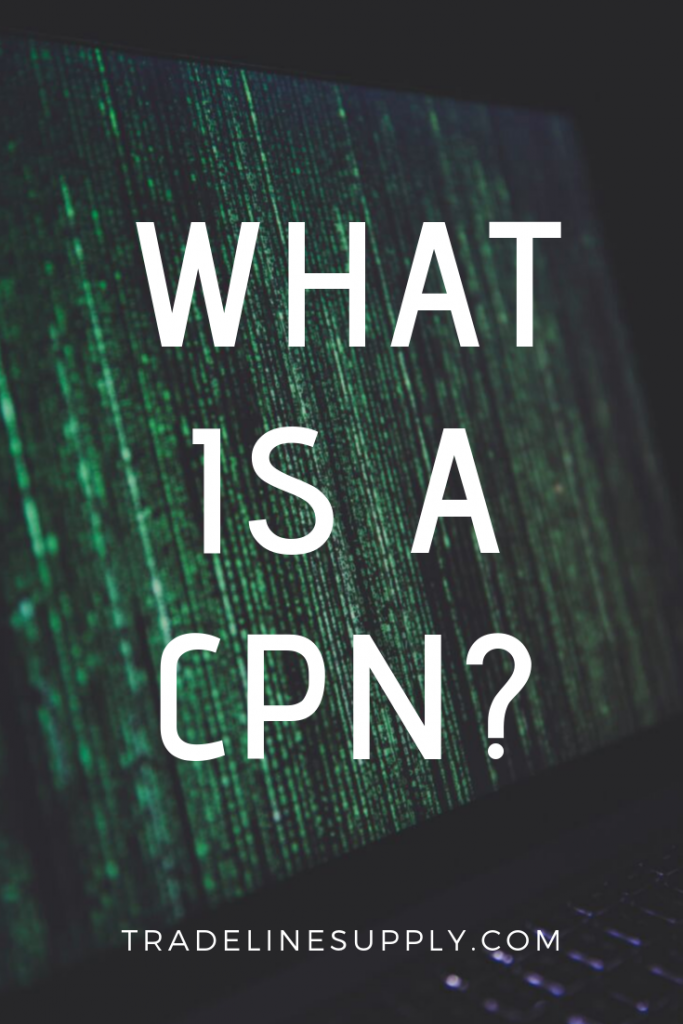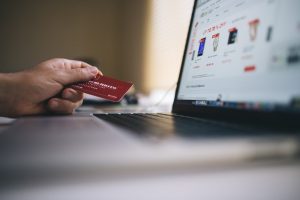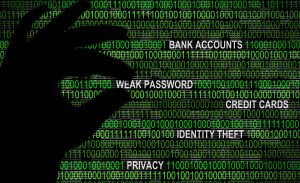What Is a CPN?

The Cost of Being Queer
08/07/2022
How to Protect Your Credit Score During a Recession
08/12/2022
“CPN” or “CPN number” can stand for credit privacy number, credit profile number, or consumer protection number. As you may know, a CPN is a 9-digit number that is often marketed as a replacement for your Social Security Number (SSN).
Some people claim that celebrities and government officials use CPNs to maintain their privacy since SSNs are linked to a lot of personal information. However, there is no evidence supporting the idea that a documented legitimate source of CPNs exists.
You have probably seen some businesses claiming to sell CPNs as a way for consumers with poor credit to apply for credit with a “clean slate.” Since the CPN is a different number than your SSN, it does not have your credit report associated with it. These companies would like you to believe that you can purchase a CPN and use it instead of your SSN on credit applications, thereby hiding your true credit history from creditors.
A CPN might sound like a good solution if you have concerns about privacy or if you have had trouble with your own credit record and want to “start fresh.” However, you should exercise extreme caution when dealing with anyone trying to sell you a CPN. Keep reading this article to find out why we do not sell CPN numbers or tradelines for CPNs and why consumers should stay away from them as well.
How Do CPNs Work?
The Claims About CPNs
Sellers of CPNs often claim that the use of these numbers is permissible thanks to the U.S. Privacy Act of 1974. This act allows people to withhold their SSNs on documents if providing an SSN is not expressly required by federal law.
Since the federal government does not require that consumers provide SSNs on credit applications from private companies, you are free to withhold your SSN—however, the creditor is also free to deny you credit without this information. The U.S. Privacy Act of 1974 does not permit the use of CPNs to replace your real SSN on credit applications, contrary to what some credit repair companies would like you to believe.

Sometimes lenders fail to thoroughly vet the identities of applicants, which may allow some people to get away with using CPNs—at first.
The reason some people can get away with using false SSNs sold as CPNs on credit applications, instead of their real SSN, is that lenders may sometimes fail to cross-verify applications thoroughly enough to confirm that the name on the application matches the listed SSN.
Where Do CPN Numbers Come From?
The Social Security Administration is the source for all SSNs and the Internal Revenue Service (IRS) is the source for all Employer Identification Numbers (EINs). These organizations do not issue CPNs and no other government entities issue such numbers.
Although you may encounter many businesses offering “clean” CPN numbers for sale, they won’t tell you where these numbers came from or how they were obtained. They cannot provide legitimate documentation on where these numbers originated from.
Some sellers falsely claim that they have attorneys who can request a CPN number application from the government for you, but since the government does not issue CPNs, this is impossible. In reality, there are two ways that disreputable companies obtain so-called CPNs, both of which are illegal:
- They use real SSNs that have been stolen from other people, often from children, the elderly, deceased people, homeless people, or those who are incarcerated. Scammers target these demographics because they are less likely to notice that their SSNs have been compromised. If someone promises to sell you a CPN that has a certain credit score or credit report associated with it, this is a big red flag that it may actually be an existing SSN that has been stolen from someone else.

CPNs are often real SSNs that have been stolen from vulnerable groups such as children and the elderly.
- They create new, fake social security numbers that have not yet been issued by the United States government. They do this by using algorithms to generate 9-digit numbers and checking them against online databases to see which numbers can successfully pose as SSNs. They then sell these numbers as CPNs to unsuspecting consumers.
How to Get a CPN
The truth is that there is no legitimate way to obtain a CPN because CPNs are not issued or recognized by any official government entity. As described above, the only way to get a CPN is to purchase a stolen or fake Social Security number.
While credit repair companies and other businesses who sell them may appear to be legitimate, there is nothing legitimate about buying a fraudulent SSN, which is what a CPN is. An SSN is a government identifying number and the government does not “sell” these numbers or offer CPN applications.
Some businesses may alternatively try to sell you an EIN, or employer identification number, promising that EINs are a legitimate form of CPNs. Although the IRS does issue EINs, these are exclusively for business use, which means that an individual hoping to improve their credit cannot legally use an EIN in place of their SSN.
In addition, according to the IRS, “Employer Identification Numbers are issued for the purpose of tax administration and are not intended for participation in any other activities…” Businesses can obtain loans associated with their EIN number, but individuals may not use an EIN as an alternate SSN to obtain a personal loan or line of credit.

There are no legitimate ways to use or purchase CPN numbers.
The Social Security Administration has the authority to assign new SSNs in extreme cases, but the requirements are strict. You can only get a new SSN if your life is in danger or if you can prove that someone has stolen your number, is actively using it, and is causing you significant continued harm.
If you do get a new SSN, your new number is still linked with the credit profile from your old number, and they both receive special indicators that help alert creditors of this change, so this would not work as a way to leave your credit history behind.
Credit Privacy Numbers: Are They Legal?
To find out whether CPNs are legitimate and legal, we can go straight to the highest authorities to see the official policy in writing. In this case, the highest authorities are the Federal Trade Commission (FTC) and the Social Security Administration (SSA).
The FTC is a federal agency that polices business activities to help protect consumers and the Social Security Administration (SSA) is the agency that administers all Social Security-related programs, so these are the governing authorities when it comes to consumer protection, identity theft, and fraud.
“Consumers who lie on a credit application, misrepresent their Social Security numbers, or obtain an Employee Identification Number from the IRS under false pretenses violate federal criminal laws.”
Clearly, using a CPN on any credit or loan application in place of your SSN is misrepresenting your Social Security number, which, as the FTC states, is illegal.
Furthermore, in an article on credit repair FAQs, the FTC says,
“If a company promises to create a new credit identity or hide your bad credit history or bankruptcy, that’s also a scam. These companies often use stolen Social Security numbers, or they get people to apply for Employer Identifications Numbers (EINs) from the IRS under false pretenses. They do that to create new credit reports. If you use a number other than your own [SSN] to apply for credit, you won’t get it. And you could face fines or prison.”
The FTC has previously issued warnings against companies that sell CPNs to those looking to improve their credit:
“The credit repair companies may tell you to apply for credit using the CPN or EIN, rather than your own Social Security number. And they may lie and tell you that this process is legal. But it’s a scam. These companies may be selling stolen Social Security numbers, often those taken from children. By using a stolen number as your own, the con artists will have involved you in identity theft.
The bottom line is that if you use the number they sell you, you could face fines or time in prison.”
A top SSA official, in a 2011 congressional hearing, said this:
“Our agents have also recently reported a relatively new SSN issue scheme involving credit privacy numbers, or CPNs. These nine-digit numbers are sold by dishonest organizations usually on the Internet, to individuals with poor finances, with the promise the numbers will allow the individuals to create a new credit file. But consumers should know CPNs are not legal identification numbers.”
The Federal Reserve Bank of St. Louis concurs, stating:
“Some credit repair companies provide this new identity…by selling the consumer a credit profile, credit privacy or credit protection number (CPN) for use in place of the individual’s social security number (SSN) when applying for credit. Consumers need to know that providing a number other than an SSN on a credit application in the allocated space is illegal and can result in criminal prosecution.”
There are many credit repair companies and other businesses selling CPNs out there that may appear to be legitimate, but ultimately, multiple government agencies have explicitly stated that if you misrepresent your SSN, you are committing a federal crime. Anyone advocating for the use of CPNs is going against facts that are verifiable in writing straight at the source.
How to Boost CPN Credit Score

Be wary of companies that tell you that you can get approved for credit using a CPN.
Credit repair companies that sell CPNs and CPN tradeline packages often say that it is easier to “boost” the credit scores of CPNs and allow you to essentially hide the bad credit record that may be associated with your real SSN.
While this tactic is becoming more common, the fact that it is happening does not make it legitimate. Attempting to hide previous bad credit by using a false SSN is misrepresenting your identity which, as we reported above, is seen as fraud on a federal level.
However, it is not surprising that the desire to buy a CPN and start over with a clean slate appeals to many people. When consumers encounter misinformation circulated by disreputable companies and hear about others having success using CPNs, it is easy to see how someone could fall into this trap and unknowingly participate in criminal activity. Unfortunately, using CPNs as a quick fix for credit is indeed too good to be true.
The sad fact is that ignorance is not an excuse for breaking the law, and blaming the company for selling illegal services does not make the consumer immune to the potential consequences. If someone does decide to purchase a CPN and use it instead of their SSN, they are creating a paper trail of this action that could come back to haunt them many years down the road, since records would be created every time a person uses this tactic.
CPNs and Synthetic Identity Fraud

CPNs are often used to commit synthetic identity theft.
The use of CPNs has contributed to a new form of fraud called synthetic identity fraud, which is also known as synthetic identity theft. Synthetic identity fraud is the criminal practice of creating fake personas through a combination of real and fictitious data.
For example, scammers could combine the address of one person with the phone number of another and the SSN (or CPN) of a third. This newly created false identity may then be used to open credit accounts and make thousands of dollars in fraudulent purchases, followed by defaulting on payments.
It is estimated that this type of fraud accounts for 80%-85% of all identity theft and causes billions of dollars in losses annually. Worse still is the damage it causes to victims whose identities are compromised.
CPNs and Identity Theft
This is where CPNs come into the picture. As we have seen, many CPNs sold to consumers are actually SSNs that belong to real people, especially children. Individuals seeking to “repair” their credit may combine these stolen SSNs with their real names to essentially create synthetic credit profiles.
When criminals, or even unsuspecting consumers, use a child’s SSN to obtain credit and then default on the debt, this leaves lasting negative marks on the child’s record. When the child becomes an adult, they may face suspicion from lenders and difficulty building credit due to the derogatory items on their record.
The victim may not even be aware of the credit fraud in their name until they need to use their SSN for financial reasons as an adult. For example, a student applying for loans to pay for college tuition may only find out that their credit has been compromised when they are denied or offered less favorable terms on their student loans as a result of the bad credit associated with their SSN.
Increased Enforcement and Security

The government is cracking down on CPNs and synthetic identity fraud.
The credit industry and the federal government are increasingly focusing on ways to crack down on this new type of identity fraud. In 2017, the FTC and the U.S. Government Accountability Office both convened groups of experts to discuss how to combat synthetic identity fraud going forward. According to the Department of Justice, U.S. Attorneys are ramping up prosecution of these cases.
In May 2018, the government passed a law that intends to reduce rates of synthetic identity fraud. The law requires the SSA to provide banks with an electronic system that can check whether an applicant’s name and date of birth match their SSN within 24 hours. This system will make it easier and faster for banks to detect synthetic identities before they unwittingly provide credit to fraudsters.
Banks are also beginning to experiment with biometric technology that could help fight fraud, like using voice recognition security to detect if an individual’s voice has been associated with multiple identities.
With the increasing scrutiny on synthetic identity fraud and CPN fraud, buying or using a CPN for any reason is a dangerous game. If you were to obtain a CPN and use it instead of your SSN on documents, you would be creating a record of committing fraud that could be detected and traced back to you, especially as banks and the federal government start taking more severe action against fraud.
How to Avoid Getting Involved in CPN Scams
When it comes to protecting yourself from CPN scams, your best bet is to stay far away from anyone trying to sell you a CPN, EIN, or anything that is supposed to somehow “wipe the slate clean” or hide your bad credit. Companies claiming that you can apply for a new line of credit in a way that is completely independent of your real credit history are trying to mislead you.
Since lenders can look into your address, name, date of birth, and other information besides your SSN, they can easily tell that you have used a false SSN because they have other information they can use to verify your identity. For this reason, some CPN providers encourage their customers to change their names and addresses. If a company selling CPNs advises you to falsify your address, phone number, or anything else about your current identity, that is a huge red flag that they may be committing fraud—and implicating you in the process.

If someone defaults on a loan they took out with a CPN, an investigation may be opened and they could end up in prison.
Unfortunately, many scammers often prey on those who are most in need: those who are low-income and can’t afford another financial hit. Misled by promises of “clean” scores and better credit, consumers are tricked into buying CPNs.
The problems occur when CPNs are used to take out lines of credit. If the borrower fails to make the required payments, the lender may have a hard time recovering the losses since a fraudulent identity was used when the borrower opened the account. At this point, an investigation may be initiated, and investigators can follow the paper trail to the consumer.
Although there are stories of people getting away with using CPNs, keep in mind that sometimes investigations take place and charges are filed several years after the fraudulent activity occurred.
Criminal Cases Involving CPN Fraud
In 2015, a man from Louisiana was charged with felony racketeering, including theft, identity theft, and money laundering for defrauding hundreds of people and financial institutions with his credit repair company. He sold SSNs stolen from children as CPNs for hundreds of dollars each, claiming they would replace the SSNs of the unknowing victims of his scheme. He could face up to 75 years in prison if convicted.
In another example that took place in 2018, Calvin Wayne Cade, Jr. of Oklahoma City pleaded guilty to knowingly making a false statement to a financial institution by using CPNs to falsify his SSN in credit applications. The CPNs he used were stolen SSNs belonging to children born in 2006 and 2008. By using a fraudulent number on credit applications, Cade deceived banks, credit card companies, and retailers into thinking he had a better credit history than he really did.
With the lines of credit he received using these CPNs, he purchased vehicles, TVs, furniture, computers, and more, and then failed to make payments on the credit accounts, causing financial losses to the creditors. Cade was sentenced to 18 months in prison followed by three years of supervised release. He has also been ordered to pay $112,924.54 in restitution to the creditors he defrauded.
The leader of a shady credit repair scheme, as well as a ring of 11 other participants, were indicted in September 2020 for defrauding banks, lenders, merchants, and landlords using fraudulent identities that involved the use of CPNs, which in this case, were often SSNs stolen from real victims. According to the Department of Justice, the charge encompasses 50 counts, including bank fraud, conspiracy to commit bank fraud, wire fraud, making false statements to a bank, perjury, and aggravated identity theft.
Clearly, getting caught using a CPN is no small matter.
What to Do Instead of Getting a CPN
If you’re reading this article, you may have been considering using a CPN, or possibly you have even purchased a CPN yourself. It’s natural to want to try something that has been marketed as a simple solution to your credit woes. But now that we know the U.S. federal government considers CPNs to be illegal, what is the best path forward?
Firstly, if you have already purchased a CPN, do not use it for any purpose. It cannot legally be used in place of your SSN to apply for credit and it may very well be someone else’s stolen SSN. You do not want to involve yourself in any potentially illegal or fraudulent activity by using the CPN.

Rather than buy a credit privacy number for sale, focus on improving your own credit score and removing errors from your credit report.
If you haven’t purchased a CPN yet but you were thinking about buying one because you have bad credit, unfortunately, there is no quick fix for poor credit. However, there are plenty of safe and legal strategies that you can use to repair your credit and build your credit profile over time so that eventually, you can successfully apply for credit using your own SSN and credit profile.
Improve Your Credit With On-Time Payments
The basic idea when it comes to building good credit is to pay all of your bills on time every time. Your payment history is the most important factor that influences your credit score. Even a single missed payment can have a serious impact on your credit.
Of course, sometimes accidents or emergencies happen, and once in a while, you may end up missing a payment. Don’t let that destroy your credit score. If you can bring your account current before 30 days have passed from the due date, then you can prevent the late payment from being reported to the credit bureaus at all. Plus, if you have been a good customer overall and you haven’t missed any payments recently, your creditor may be willing to forgive the late payment and wipe it from your record. It’s also worthwhile to ask your lender if they can waive the late fee as well.
If you are in financial hardship and can’t afford to pay the amount that you owe, see if your creditor can work with you to temporarily defer or reduce your monthly payments. Don’t just keep skipping payments, or the creditor may sell your account to a collections agency on top of reporting all of the missed payments. A collection on your credit report is a major derogatory item, so it is even more damaging to your credit than having a 30-day or 60-day late payment on your record, which are minor derogatory items.
Lower Your Credit Utilization Ratios
The second most important piece of your credit score is your credit utilization ratio. The best thing to do for your credit is to keep this number as low as possible by only using a small fraction of your available credit. See our article on individual vs. overall utilization ratios for tips on how to maintain low credit utilization.
Focusing your efforts on these two main principles will go a long way toward rebuilding your credit. Once you’ve made progress in those departments, you can also start to think about how to improve your credit age, credit mix, and new credit categories, which we cover in detail in “How to Get an 850 Credit Score.”
Remove Errors From Your Credit Report
In addition, be sure to check your credit report for any errors that may be affecting your score and dispute them with the credit bureaus.
When you get your credit back in shape, you’ll be able to apply for loans with your real SSN with much better odds of being approved. Having good credit is something that will give you a financial advantage for the rest of your life, so it’s worth it to put in the time and effort now to get your credit back on the right path as soon as possible.
On the other hand, while using a CPN may seem like a quick and easy shortcut to a clean credit profile, it’s definitely not worth the risk of possibly going to prison and having a felony on your record.
Conclusions on CPNs

Using CPNs and engaging in identity fraud can lead to serious prison time.
A Social Security number is the most important and high-level personal identification number used in the United States. The government alone issues these numbers and they are not to be bought or sold on the open market. Misrepresenting your SSN has been defined as a federal crime by the government, so using a CPN in place of your SSN could also implicate you in a federal crime.
The use of CPNs has become highly associated with a new form of fraud called synthetic identity fraud. Although this is a relatively new phenomenon, the government is quickly catching up to illegal businesses that sell these CPNs, which assist those who are looking to synthesize a new identity for financial gain. Court cases as recently as September 2020 are showing that people who engage in this type of fraud can receive heavy fines and prison time.
While there are many companies advertising that CPNs are legal, the governing federal agencies have clearly stated this is not the case.
The government has prioritized synthetic identity fraud as a major national security concern. In response, federal agencies including the Department of Homeland Security, the FBI, the Postal Inspection Service, the Secret Service, the Department of State, Social Security Administration, and the Federal Trade Commission are creating new task forces to investigate and prosecute fraudulent activity.
Why We Don’t Work With CPNs
Since using CPNs to apply for credit is against the law, we cannot assist consumers who are looking to use them. Our service is strictly for people using a valid SSN. We verify all of our clients’ SSNs through third-party databases, including directly with the Social Security Administration, before processing orders and we take all necessary measures to protect our credit partners, our clients, and creditors. Under no circumstances will we accept a CPN, and any orders attempting to bypass our fraud filters will not be refunded.
If you’re looking for a quick solution to erase your debt or fix a poor credit score, there is no silver bullet. Not only will CPNs not solve your problems, but you could get into serious legal trouble. Instead, use the content in our Knowledge Center to work on building credit the right way using your real SSN.






32 Comments
Do you set up CPN if so what is the rate
No, CPN’s are illegal, please read the article.
Which part of the article specifically
For a complete understanding we would recommend reading the entire article.
in South Africa, we use IDs instead of ssn, so I wanna know if it’s possible to use my id to purchase tradelines to boost my credit score
You need a SSN in order to purchase a tradeline.
so it means I do not qualify to buy tradelines as South African
Unfortunately, no. Tradelines would not work outside of the American credit system.
any guideline or advice regarding my issue as a person with whom has a national credit profile number, What can I do since I am in South Africa to get a boost or if you have any referral that would help my case, I would be grateful
I’m sorry, but we don’t have any knowledge about the credit system in South Africa. If you are talking about an American CPN, those are illegal.
Do yall supply cpn
No.
According to the FBI website CPN’s can be used, you just have to pay the debt.
Saw this on a Mortgage Fraud report on fbi.gov ….. SCROLL ALL THE WAY DOWN TO #35 IN THE REFERENCE SECTION (APPENDIX C)
https://www.fbi.gov/stats-services/publications/mortgage-fraud-2008
This is a 12 year old document addressing a limited use case for a CPN. There are extreme cases (witness protection), where a CPN may be permissible, but in all of those cases it would be issued from the SSA. An individual cannot buy or makeup a CPN number whenever they feel like it and start using it as an alternate SSN.
What happens if a cpn gets attach to your ssn
Im looking for trade lines for my CPN. My CPN does not have a score yet. can you help.Ready today.
We do not work with CPNs due to the reasons stated in this article.
Hello,
I want to know what is there i can do besides Trade-Lines because i have two {2} of them with your company already in my credit SCORE hasn’t changed mt FICO SCORE AT ALL???
How much are the trade lines ? How long can the trade line stay on my credit ?
You can find our live list of tradelines and prices at the top of the website where it says “Buy Tradelines.”
Please also see this FAQ page: “How Long Do Tradelines Stay on Your Credit Report?“
If & when a tradeline is purchased from your company & it has no effect on my credit profile what do your company suggest as an alternative or an advice.
We guarantee that the tradeline will post to your credit report with at least two of the three major credit bureaus. If that does not happen by the end of the stated reporting period, you can report a non-posting to receive a refund. Check out the resources on our site for info about credit.
https://tradelinesupply.com/guarantees/
https://tradelinesupply.com/non-posting/
https://tradelinesupply.com/blog/
I need a credit expert to help me. I have a poor score and need a professional expert in assisting my needs.
We provide free educational resources with general information about the credit system in our Knowledge Center, but we are not a credit repair company and we do not offer credit repair services. Best of luck with your search.
https://tradelinesupply.com/do-you-do-credit-repair/
Could I purchase tradelines from this website for a Cpn?
No.
https://tradelinesupply.com/whats-a-cpn-and-why-dont-we-accept-them/
I think that you should be more clear as to why CPN’s aren’t issued or recognize by the governments and here in America because the CPN law was passed in 1974 to use the CPN as a privacy act law. So people did not have to use their Social Security. There are also credit card providers who can take your CPN number as an option as well.
There is no law that allows you to use a fake SSN in place of your real SSN. It’s fraud to use a CPN to apply for credit and it’s illegal.
Cpn
Treeline and CPN numbers if you can return my call thanks Lonnie
Great write ups. Regards.
@tradelinesupply I played out this interaction in my head. Ahamad looks confused. Then and still 🤣. Tradeline eye rolls in a way I’m jealous of. And also is irritated that there’s an extreme lacking of common sense🤣🤣. And yes, I will have to say odds are choosing to do multiple palm to forehead acts with dramatic sighs and mumbled omgs is appropriate. I predict precious Ahamad will get got if not already. And where did he go for 1/2 a year? And I may have laughed too hard for how he just came back in responding like he been here the entire time and the gap in communication is not real 🤣🤣.